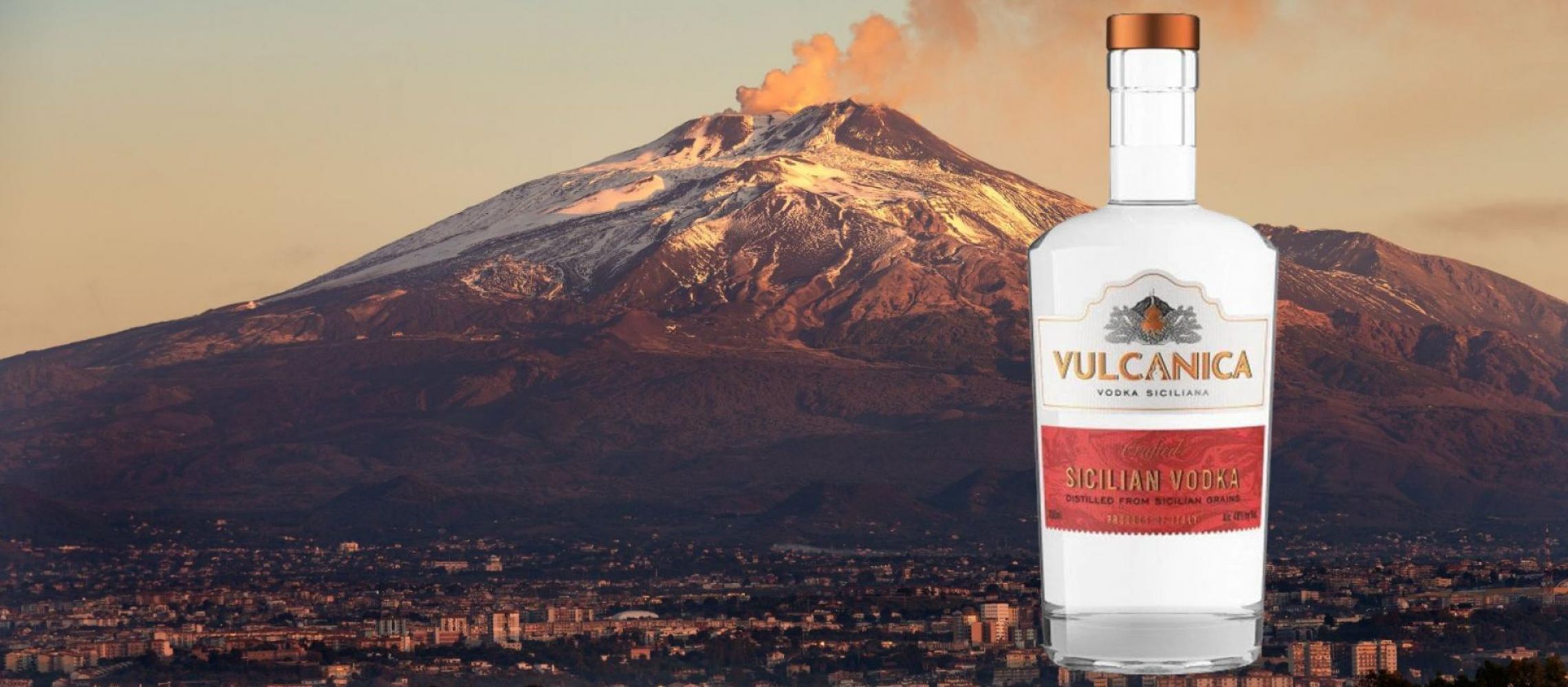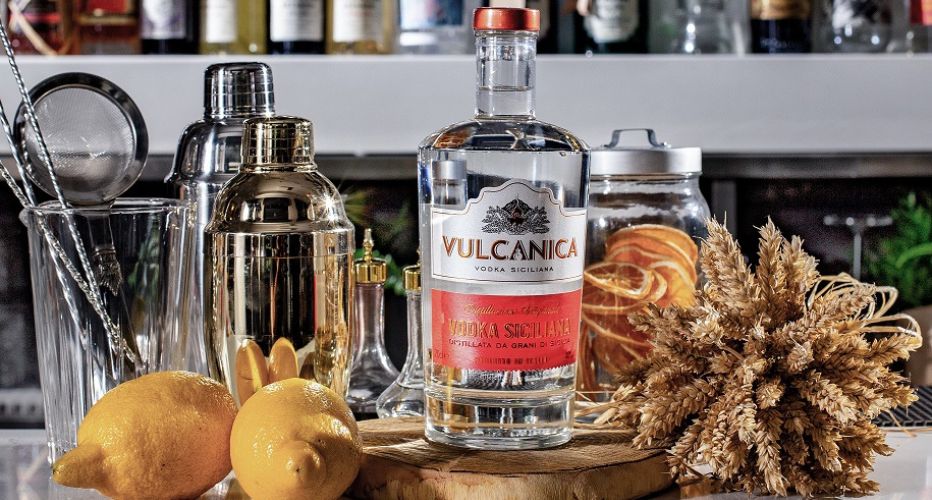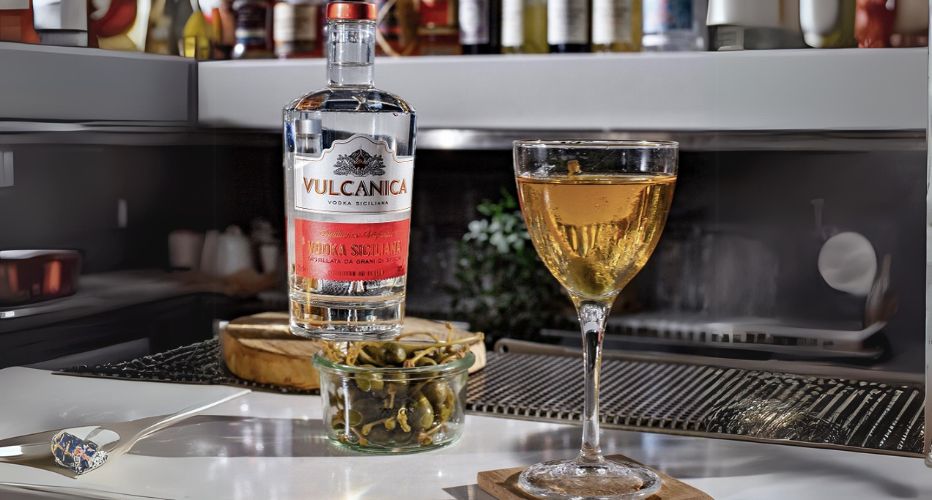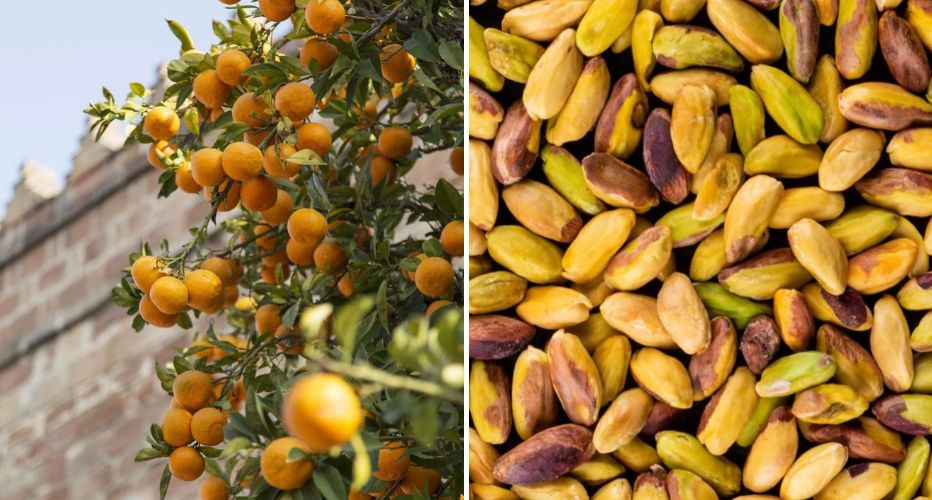Registration Opens
01 May 2024
Judging
Date
26 & 27 March 2025
Winners Announcement
22 April 2025

London Spirits Competition chats with Serena Bonetti, Chief commercial officer of Vulcanica. Here is the story of Vulcanica, a Sicilian vodka that growing in the global markets and is now ready for growth in the UK. Here’s all you need to know if you are a bartender or a UK spirits distributor of the brand.
Sicily was famously Rome’s granary. Before that, Sicilian grain was shipped to Greece and other parts of the Mediterranean region. Grain has remained a fundamental part of the island’s economy until recent times as it still is an important crop but, more significantly, an amazing quantity of ancient and indigenous grain varietals belong to Sicily.
The region where our ancient grains are grown is dominated by Mount Etna, the highest active volcano in Europe and a towering and unmistakable presence for the soil, the crops, and the groundwaters.
Maniace, Bronte, Maletto e Linguaglossa represent the main areas where our ancient grains come to life with all their unique features. Giovanni Ruvolo, the former mayor of Caltanisetta, once said: “Our farmers were so conservative that they have never managed to grow the modern high-yield grain varietals that everybody else favours. Ironically, this disadvantage has now transformed into a competitive advantage”.
The ancient grains are all those varieties of wheat that were cultivated in Sicily even in Roman times when this land was considered the granary of the Empire. Then the advent of modern, intensive crops, born to feed the population after the two world wars, almost swept away native crops, leading to the creation of refined flours, with less organoleptic and nutritional properties.
Over the last few years, a growing trend has developed the return to ancient grains for the production of superior bread, pasta, and other wheat-based products.
We selected six varietals of them and blended them so that each of them brings to Vulcanica the organoleptic properties that make it so special:
Perciasacchi: It is called this way because it has a «bearded» shape and it is guilty of breaking the jute bags where the grains were held. It is grown widely on the hills west of Etna, on fertile soil, and at lower altitudes. Its terroir gives Vulcanica structure and persistence.
Timilia: This variety is the oldest and it is popular because it can be sown until late March, it is very savoury but also raw so it has to be blended with other grains to smooth the tips.
Russello: This was one of the most common grains in Sicily until the mid-twentieth century thanks to its easy adaptability to different types of soils. Its flavour is elegant and refined and it gives Vulcanica its delicate and harmonious aromas.
Margherito: This is known locally also by the name of «Bidì», it can give good yields while maintaining high levels of quality. It has a good protein content, and pleasant aromatic nuances and it gives Vulcanica its distinctive body.
Maiorca: The flavours and territorial expression of this variety reach their heights and steepest terrains. The texture of Majorcan wheat is light and delicate, releasing a refreshing scent. To taste, wheat has a complex and oily taste with floral notes so that in a sip of Vulcanica, the role of Maiorca is to soften the sensation on the nose and palate.

In the development of Vulcanica, there is a key entity that has played an important role: Simenza – Cumpagnia Siciliana Simenti Contadine, the association with which we interact, that values and protects the ancestral methods of cultivation of ancient grains of the region and the maintenance of biodiversity.
Simenza was founded in 2016 by a handful of farmers, technicians, farmers, and operators of the wheat industry and moved by a single mission: to avoid the extinction of ancient grains and convey knowledge about products derived from them such as flour, bread, and pasta.
Simenza has over 190 members who work exclusively in organic and biodynamic and tell that the grains are up to 1.70m and 1.80m high, low in gluten, rich in fibers, and minerals, and the lands are cultivated only in organic not for fashion but because so did the farmers of the past.
However, the association is not only made by farmers of seeds but also vegetable growers, rice producers, and winemakers, so much so that the University of Catania has classified these lands as ecosystems rich in organisms: ladybugs, insects, wild plants, birch, chestnut, and more than 200 fruit trees.
Volcanic soils are more fertile due to volcanic ash that contains very high mineral concentrations and when mixed with soil, contains nutrients such as phosphates, nitrates, potassium, and calcium (among others) necessary for healthy plant growth. The soils known as volcanic are usually basalt-based, as opposed to granite which is also volcanic but has rocks formed underground with large crystals. In volcanic soils, however, the crystals are small and therefore degrade and dissolve quite quickly. Basalt soils are richer in nutrients than any other type of soil and have a high iron content.
Moreover, volcanic soil is fertile because it is new, it has just erupted in the "higher" world. It is fresh, uncoated, and loaded with all kinds of elements present in the earth’s crust. When rain falls on the volcanic soil, it dissolves some of these elements and makes them available to our ancient grains that grow so strong and rich in nutrients that are found in the organoleptic properties of all the products born from ancient grains, like our vodka.

FERMENTATION: After having selected the perfect blend among the 5 different kinds of ancient grains, spontaneous fermentation comes thanks to the operations of a selected variety of natural yeast.
DISTILLATION: We make a double distillation, the first one of small batches in a copper column and the second one in a pot still alembic to provide smoothness and body to the product. These steps ensure in each production the correct balance between the different types of ancient grains that give the product the body and softness that are recognized.
FILTRATION: Only two passages of light filtration with pure Sicilian waters, 200 meters deep, the filtration is light to preserve the presence of essential oils derived from the raw materials used, allowing the flavour of ancient Sicilian grains to remain persistent and released in the mouth, both smooth and blended.

Image: Sicilian oranges and pistachios
The first characteristic that differentiates Vulcanica is its organoleptic properties: it has perfume, it has its flavour, the raw materials arrive in the bottle, and is not hyper distilled and hyper filtered as the majority of vodkas on the market.
The other characteristics of Vulcanica that allow a differentiation within the vodka market are many: a story that speaks of farmers and ancestral crops, Etna that reigns supreme in all facets of the product, the variety of selected ancient grains, and the curiosity of a vodka made with ancient Sicilian grains. Vulcanica is the ideal product for bartenders looking for niche products because they want to do a premium and sophisticated job thanks to the selection of artisanal spirits as well as being the perfect vodka for a consumer who is looking not only for a product but a complete experience with an admirable history.
WHY UK?
The UK spirits industry has always been a dynamic landscape, constantly evolving to meet changing consumer preferences and in Europe has always been driving the world of mixology and anticipates trends. In recent years we have seen an increasing demand for products with these characteristics: quality, taste, craftsmanship, premiumness, and authentic history.

Marco Stella, one of the leading Bartenders in France and the UK believes in Vulcanica and is also a driving force behind the brand in brand promotions.
In addition, the Martini cocktail and the Cosmopolitan are in the top 5 places in the ranking of the most drunk cocktails in the UK, often inspiring twists in all the most interesting versions.
Our current main market is the USA where we created an interesting trend in Sicilian Martini, made with Vulcanica, semi-dry Marsala, and "cucuncio" which is the flower of the caper.
[[relatedPurchasesItems-63]]
The reason why we are launching a new product, a perfect marsala for this drink, is to revive the brand founded by Benjamin Ingham, the English merchant who at the beginning of the 19th century first brought the art of fortified wines to Sicily. But this is the next story I’ll tell you...
Call for domestic and international submission is now open for London Spirits Competition. Enter your spirits and give your brand a global boost. Register now to save on early bird pricing.